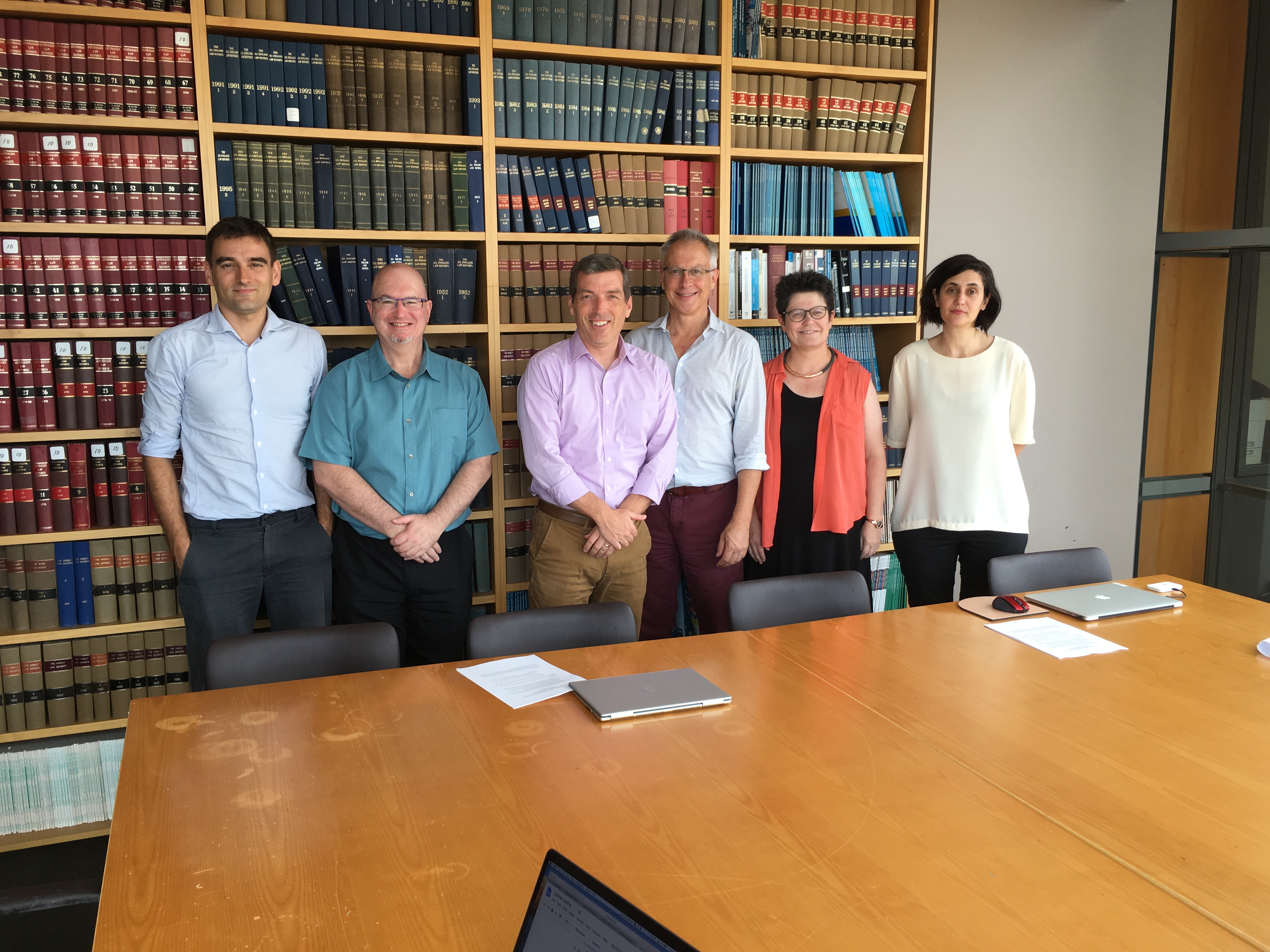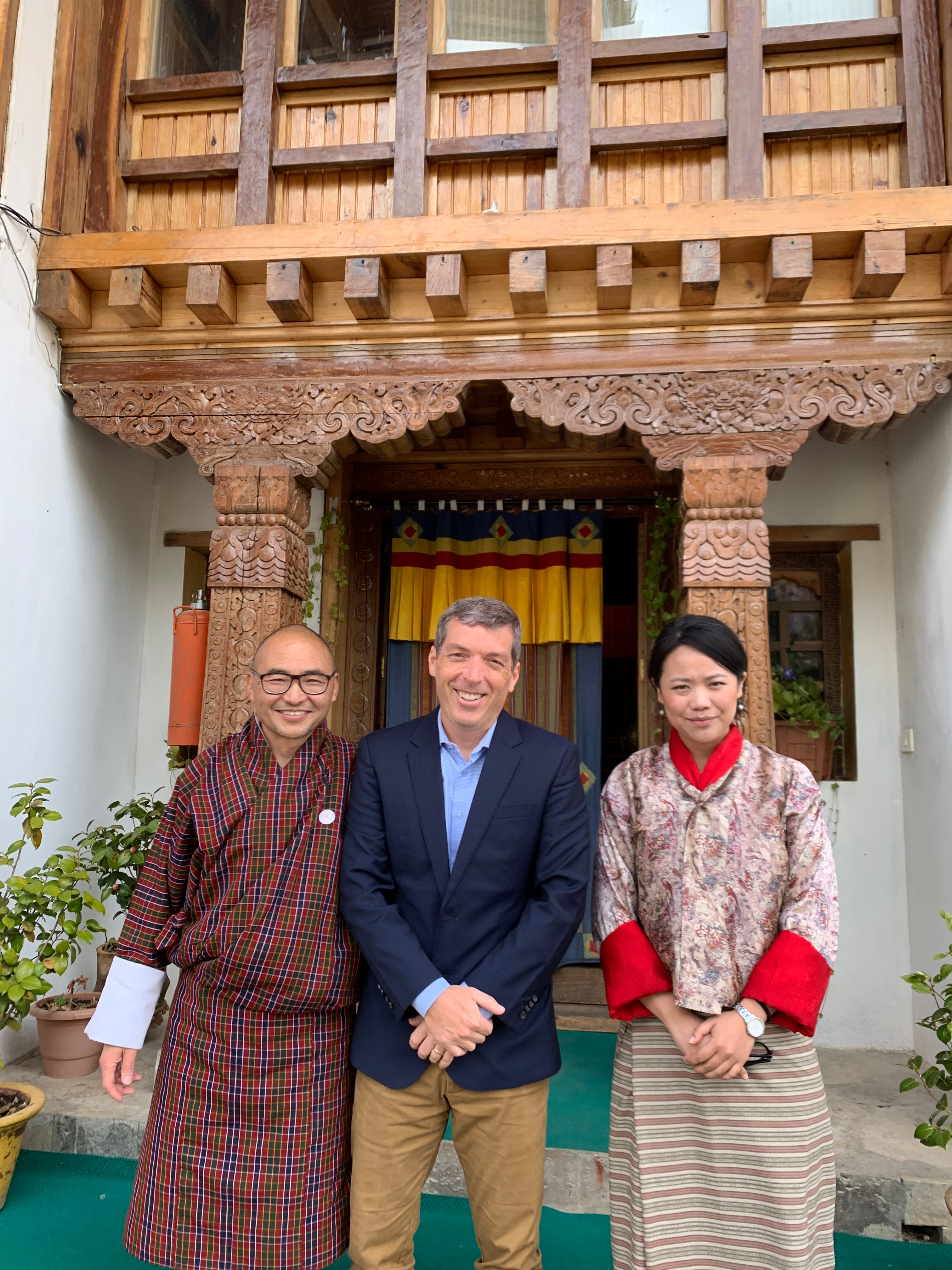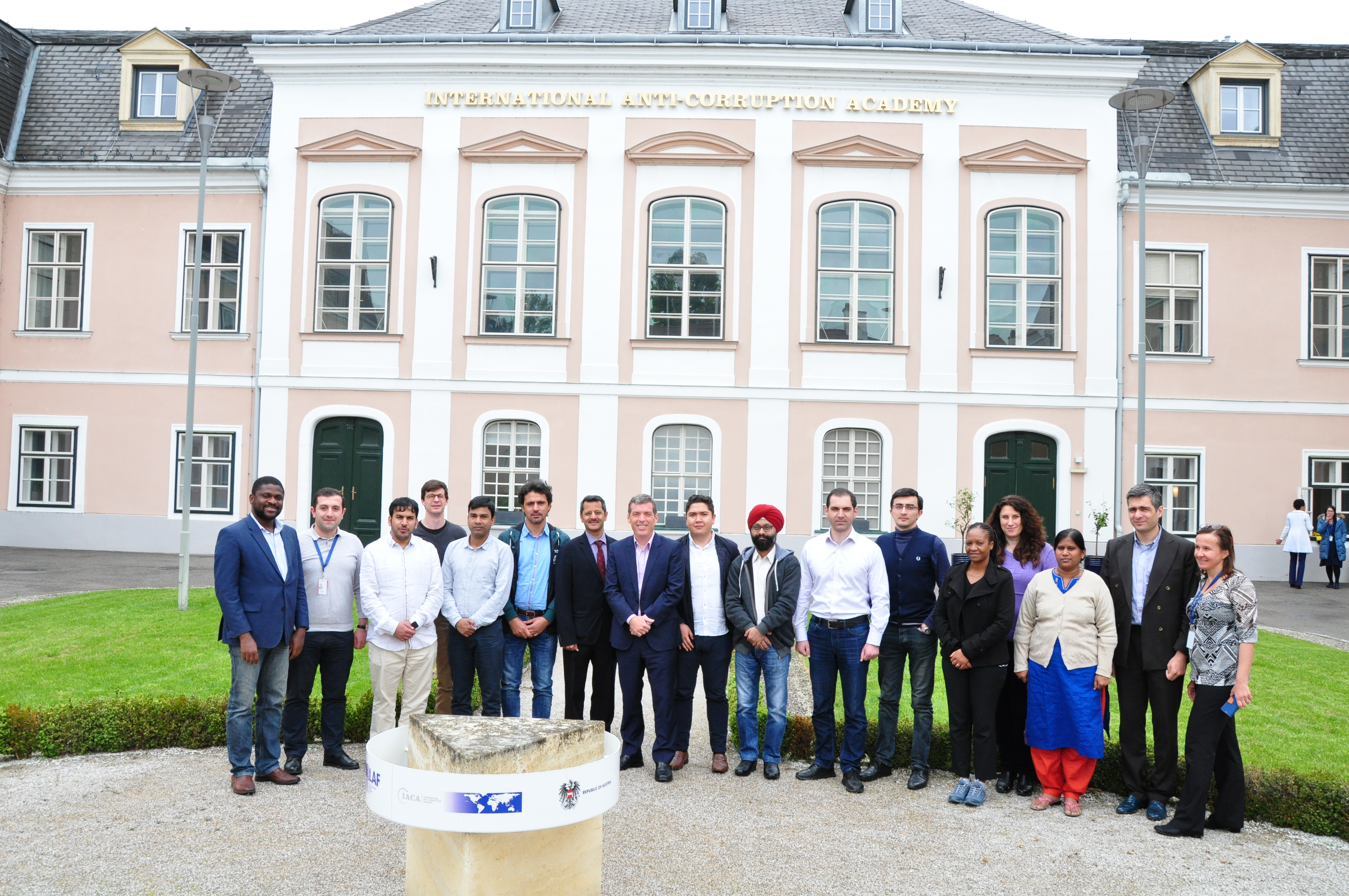A Sabbatical with International Impact
Over the course of a semester-long sabbatical, Richmond Law Professor Andy Spalding has built partnerships with government agencies, created curricula for new law schools, and drafted white papers for the International Olympic Committee – and that’s just the tip of the iceberg. Join us in a quick recap of some of the highlights of his work spanning three continents.

During his time in Australia, Professor Spalding met with members of the Human Rights Group of the Olympics Compliance Task Force at the University of Sydney Law School for a one-day workshop. Professor Spalding is chair and founder of the task force, which explored the new human rights clause in the IOC host-city contract – and drafted a document outlining how entities participating in the Paris 2024 Olympic Games can fulfill due diligence obligations when it comes to human rights matters.

At the Jigme Singye Wangchuck School of Law – the first and only law school in Bhutan– Professor Spalding spent a month helping build the school’s anti-corruption curriculum. After first visiting the newly founded school in 2017, Spalding returned to build on research and partnerships with Professor Kesang Wangmo (above right) and Dean Sangay Dorjee (above left). “There are unique approaches to corruption in Bhutan that we’re trying to draw out and explain,” said Professor Spalding.
In Austria, Professor Spalding made a return appearance at the International Anti-Corruption Academy, where he has taught a course in international anti-bribery law for the past five years. Founded by the United Nations Office on Drugs and Crime, INTERPOL, the European Anti-Fraud Office, and the Republic of Austria, the academy is the first global institution “dedicated to overcoming current shortcomings in knowledge and practice in the field of anti-corruption and seeking to empower professionals for the challenges of tomorrow.”
“The anti-corruption movement now spans every continent, political system, and degree of economic development,” said Professor Spalding. “My sabbatical has helped me to see, and to appreciate, that which is culturally distinctive and that which is truly global.”

